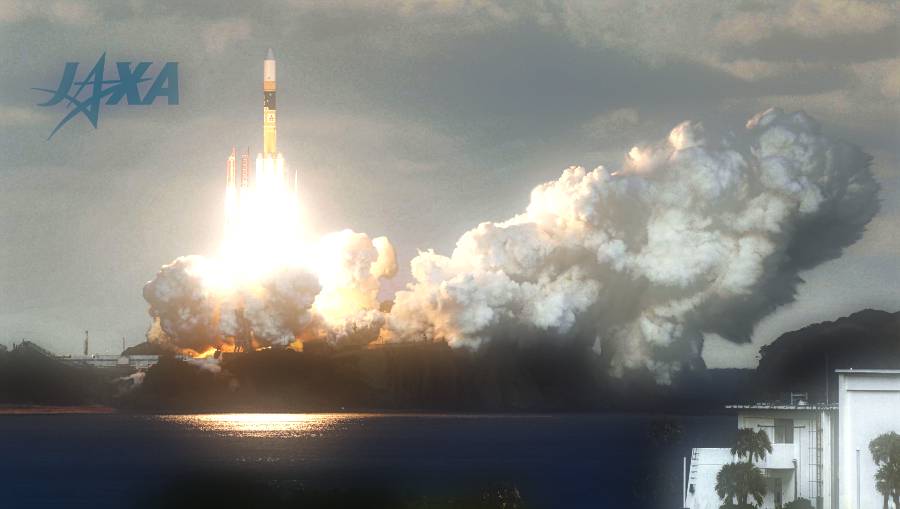Japan’s Aerospace Exploration Agency (JAXA) launched the Kirameki-2 satellite aboard the agency’s H-IIA rocket on Tuesday afternoon. The payload will enhance military communications amid rising tensions with China over territorial disputes.
The ‘X-band’ satellite is the first in a series of three that will replace civilian units currently in orbit and operational.
It will enable communications between divisions of the Japanese Self-Defence Forces (JSDF) in the country.
The successful launch follows the misfortunate takeoff of the SS-520 mini-rocket over a week ago when the spacecraft presented a communications issue and then promptly fell back to Earth.
Japan will bolster military comms with three Kirameki satellites
Kirameki-2 is just the first of a trio of satellites planned to launch shortly. Together, they will enhance communication capabilities primarily for military forces, while also providing updated support for civilian networks.
The Kirameki-2 is the first to reach the orbit successfully. JAXA briefly halted its launch program following an accident with the first unit last July.
The Kirameki-1 received substantial damage to its instruments during transport from Japan to French Guiana for launch. The satellite is currently undergoing repairs and will re-launch next year as the second addition to the constellation.
Japan’s military is wary of China over the Senkaku Islands
While the JSDF have been historically peaceful in their activities, recent aggressive movements by China have prompted the military body to respond accordingly with concrete actions.
The Asian giant has increased its presence in the East and the South China Sea, raising alarms in the Japanese forces as these territories are heavily disputed between the two nations.
After Japan’s military was reformed as the JSDF, the U.S. gave control to the country over the Senkaku Islands, five pieces of uninhabited land to the northeast of Taiwan.
In China, they are known as the Diaoyu Islands, and they represented no interest to the Republic until resource exploration missions discovered what seems to be valuable oil reserves on the sea surrounding them.
Since then, the two countries have disputed the sovereignty of the Islands, which also hold a strategic post from the geopolitical point of view for their proximity to both mainland China and Taiwan.
Japan, known for taking a more civic approach to what the role of their military should be, is now undergoing a paradigm shift to assume a more active position and defend what is theirs.
The initiative to launch their own communications satellite will not only serve for the task at hand in the East China Sea, but also for keeping an eye on an increasingly trigger-happy North Korea and their rumored nuclear warheads.
Source: Reuters












